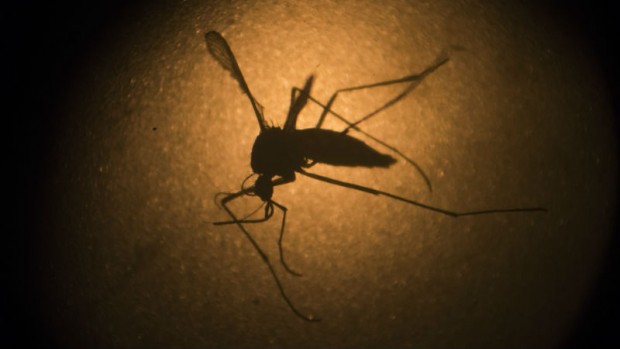Zika virus detected in PH
AN AMERICAN woman who visited the Philippines for four weeks in January tested positive for the Zika virus upon returning home, an indication that mosquitoes carrying the disease are lurking somewhere in the country, the Department of Health (DOH) said Sunday.
In a press briefing, Health Secretary Janette Garin said the “nonpregnant US resident” was the Philippines’ second laboratory-confirmed case of the mosquito-borne virus, which has been linked to microcephaly, a severe brain defect in infants, and to a neurological disorder called Guillain-Barré syndrome (GBS).
The country had its first reported case of Zika virus infection in 2012—a 15-year-old boy in Cebu who had no travel history.
Garin said the DOH was closely coordinating with the US Centers for Disease Control and Prevention (CDC) for the profile of the patient as well as find out which places she visited in the Philippines from Jan. 2 to 26.
“We were informed that shortly after returning home to the US, an evidence of Zika virus infection was detected in the patient,” Garin said, adding that the DOH received the CDC alert at 4:30 a.m. on Saturday.
Article continues after this advertisementDeveloped symptoms
Article continues after this advertisementBased on the CDC alert, the female patient developed symptoms of the virus such as fever, rash, joint and muscle pain, and conjunctivitis during her last week in the Philippines.
Based on initial information, the American tourist had traveled mostly in Luzon.
“But we reiterate, this is just one case. There is no epidemic of the Zika virus in the Philippines. There is no outbreak of the Zika virus in the Philippines. There is no cause to panic,” Garin said in an interview.
But she strongly advised pregnant women in the country and those planning to get pregnant to take extra precaution against mosquito bite, especially two hours before sunrise and two hours before sunset when the Aedes aegypti mosquito is most active.
Primary carrier
The Aedes aegypti mosquito is Zika virus’ primary carrier, the same vector responsible for dengue fever, which is endemic in the Philippines.
“We have existing mosquitoes that cause dengue. So, possibly we can have the Zika virus,”
Dr. Socorro Lupisan, director of the Research Institute for Tropical Medicine (RITM), said at the press conference.
The Philippines is among the countries classified by the World Health Organization (WHO) as those with reported or indication of autochthonous or local Zika virus transmission and no reports of GBS or microcephaly.
The other countries belonging to this category include American Samoa, Cambodia, Fiji, Malaysia, Marshall Islands, Samoa, Solomon Islands, Tonga, Vanuatu and Lao PDR in the Western Pacific Region, and Indonesia, Maldives and Thailand in South East Asia.
Brazil
Brazil is the lone country with reported or indication of autochthonous Zika virus transmission with microcephaly and GBS, according to the WHO.
“We know already for a long time that Aedes aegypti mosquito is endemic in the country and since we have cases of dengue, chikunguniya and Japanese encephalitis, there is also the Zika virus and we have to remember that we have a documented case [of the virus] in 2012,” Garin said.
She noted that the patient in Cebu four years ago had no history of exposure to foreigners or travel abroad, which strongly indicated that the Zika virus infection in the Philippines was locally acquired.
“But this doesn’t mean that we have to panic,” she said, noting that 80 percent of the cases of the Zika virus have no symptoms at all and patients just spontaneously shed off the virus without knowing that they had been infected.
At risk
At risk, however, are pregnant women, as the virus is known to affect unborn children. While experts have yet to document a direct relationship between Zika virus and microcephaly, a condition in which the baby’s head is smaller than normal, there is evidence showing a “strong causal relation.”
There is also evidence linking the virus to spontaneous abortions among pregnant women who contracted the virus, Garin said in an earlier interview.
The Philippines has recorded 332 cases of microcephaly in the past 10 years but none of them have been linked to the Zika virus, according to Garin. Studies have shown that the cases are congenital.
“We call on pregnant women and those planning to get pregnant to exercise maximum efforts to avoid getting bitten by mosquitoes,” Garin said.
She also advised the public to maintain cleanliness at home and in the community, and to continue searching for and eliminating potential breeding sites of mosquitoes.
“Even as small as a bottle cap is a potential breeding site. So be sure to remove these things in your houses,” Garin said.
She also said that those experiencing symptoms should immediately seek medical attention to avoid the spread of the virus.
Earlier, the DOH advised Filipino women who are not in a hurry to get pregnant to use family planning methods if they are worried about getting infected by the Zika virus, which has recently been found to be also transmissible through sexual contact.
Experts have found that the virus can stay in the semen for 62 days, according to Lupisan.
She assured the public that the RITM hospital in Muntinlupa City had the capability to test suspected cases through real-time Polymerase Chain Reaction. The test is also available in the Visayas and Mindanao.
